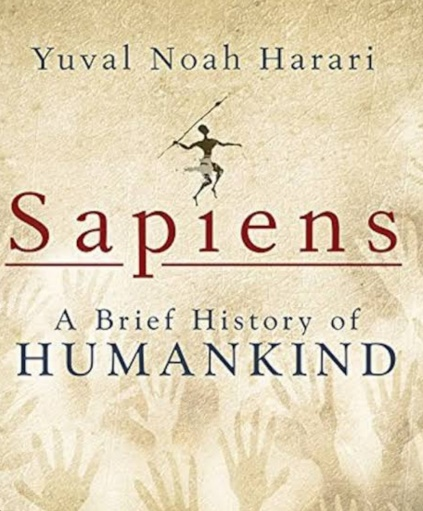
Sapiens:A Brief History of Humankind
Original Title
Sapiens:A Brief History of Humankind
Subject & College
Publish Date
2011-01-01
Published Year
2011
Publisher, Place
Total Pages
498
ISBN 13
9786194102386
Country
India
Language
English
Readers Feedback
Sapiens:A Brief History of Humankind
The book Sapiens is a inspiring search of the history of Homo sapiens, from the emergence of the species over 200,000 years ago to the...Read More
PRof. Anil Dhawale
Sapiens:A Brief History of Humankind
The book Sapiens is a inspiring search of the history of Homo sapiens, from the emergence of the species over 200,000 years ago to the present day. It is the rare book that combines history, anthropology, and philosophy to offer a fresh perspective on human development and the world we live in today.
The book is divided into several key sections, each covering a transformative period in human history. He starts with the Cognitive Revolution (about 70,000 years ago), when Homo sapiens began developing advanced cognitive abilities, allowing for the creation of language, myths, and complex societies. From there, Harari moves on to the Agricultural Revolution, the rise of empires, the Industrial Revolution, and ultimately the present-day technological age. One of the key strengths of Sapiens is Harari’s ability to present complex historical concepts in an accessible and engaging way. He has a knack for making dense subjects relatable and interesting, using storytelling techniques and provocative ideas to keep readers hooked. His use of thought experiments and counterintuitive perspectives, like questioning the true benefits of the Agricultural Revolution (which he argues led to more suffering for humans in many ways), challenges conventional wisdom and forces readers to reconsider what they know about history.
The book’s most captivating moments often come when Harari blends history with philosophical reflection. He questions the meaning of progress, the nature of happiness, and the moral implications of the advancements humanity has made. For example, he asks whether the rise of capitalism and consumerism has truly improved our lives, or if it’s just made us more driven and discontent.
Harari is also unafraid to touch on big-picture issues like the future of humanity. He discusses the potential consequences of emerging technologies, such as genetic engineering and artificial intelligence, and raises existential questions about where we’re headed as a species.
However, while Sapiens is undeniably thought-provoking, it isn’t without its critiques. Some readers argue that Harari oversimplifies certain historical events or tends to present sweeping generalizations. His interpretations, particularly when it comes to the agricultural revolution and human happiness, might not align with every expert’s view. Additionally, his style can occasionally feel more speculative than scholarly, which might put off readers seeking a more rigorous, fact-based history.
All in all, Sapiens is a fascinating and intellectually stimulating read. Harari manages to weave together human history, science, and philosophy in a way that encourages readers to reflect on our past, present, and future. It’s a book that doesn’t just aim to inform, but to challenge the way we think about humanity itself. If you’re looking for a big-picture view of human history and a thought-provoking take on where we’re headed, Sapiens is definitely worth the read.
